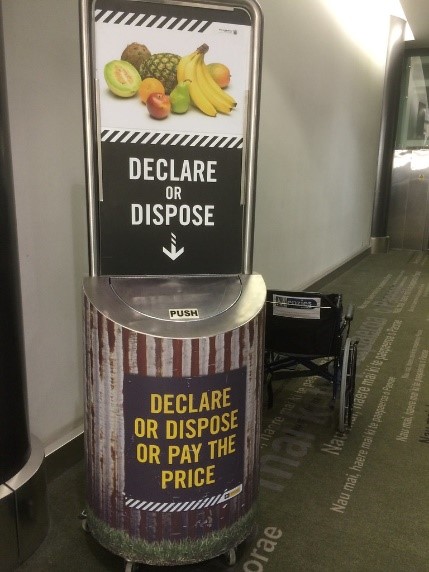A recent review of major air and sea ports in Barbados and the OECS revealed significant gaps in biosecurity arrangements. These gaps range from inadequate staffing; poor physical facilities for inspection of luggage and cargo and inadequacy to respond to emergency situations.
The review was conducted by Dr Anthony Richards, consultant and Mr. Naitram Ramnanan, Regional Representative for the Caribbean and Central America. The review exercise was conducted under the auspices of the project: “Preventing the COSTS of IAS in Barbados and the OECS” which is funded by the Global Environmental Facility with the United National Environment as the implementing agency.
Based on range of the existing gaps and the unavailability of resources to address them in the short term , the decision was made to pilot a programme, where arriving passengers will have to declare, dispose or be fined if they fail to declare high risk items such as food, live plants and animal or their products.
Some OECS member states have already expressed their support for this initiative.
A capacity building workshop is planned for the 5th to 9th May 2020 in St. Kitts. The aim of this workshop is to sensitize key stakeholders to the risks and to develop a plan for reducing these risks. New Zealand experts Paul Bradbury and Keith Budd, who were involved in a similar programme that was developed in New Zealand, will be conducting the capacity building workshop.
So if you are visiting the one of the OECS islands in the future and see a sign similar to the one below please comply.
More than avoiding a fine you will be helping to protect the unique biodiversity in the region that can be severely threatened by the introduction of invasive species.
